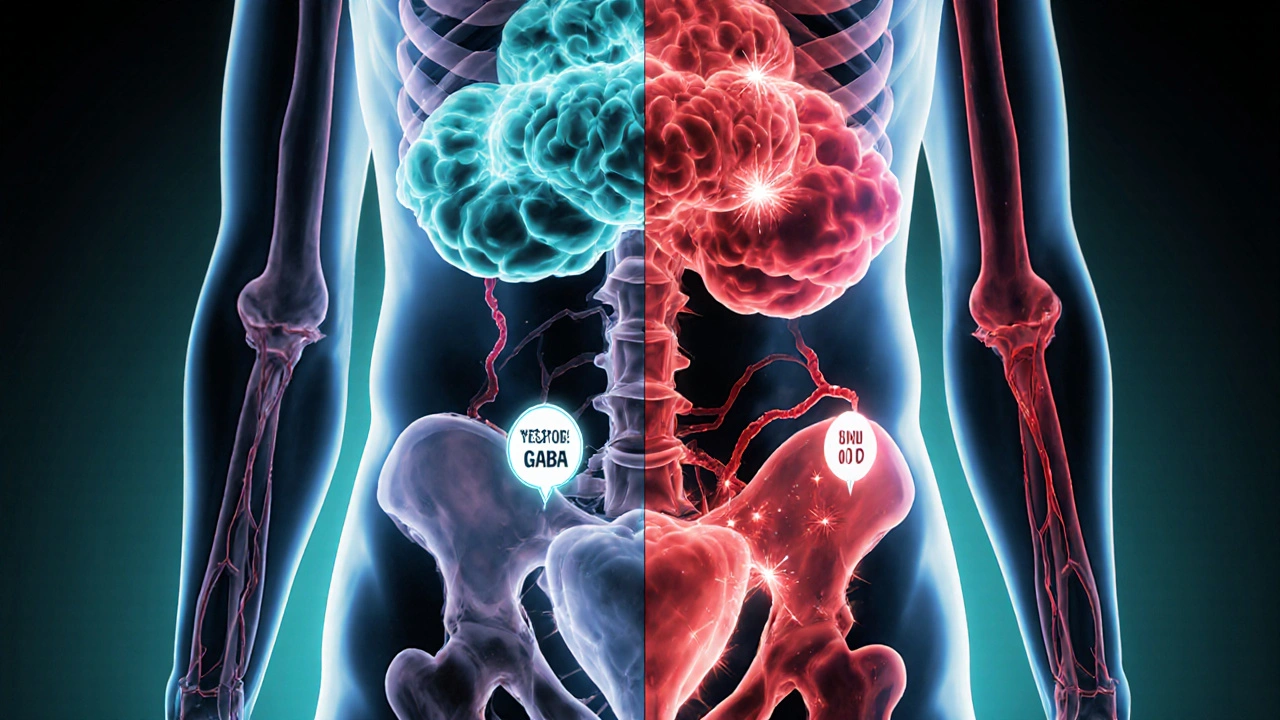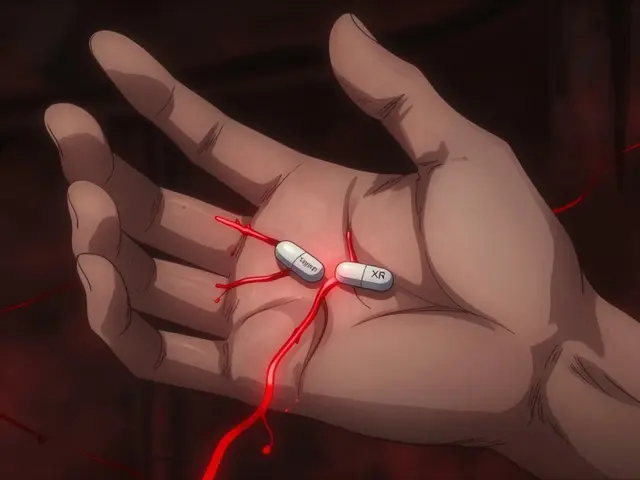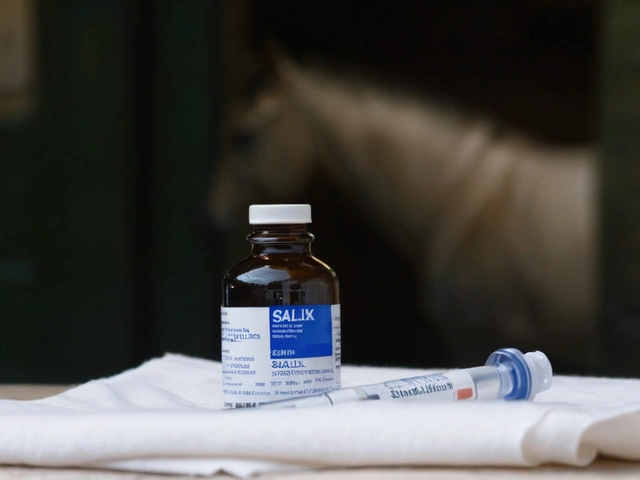Recovery Progress Estimator
Track Your Recovery Progress
Enter your sobriety duration to see expected improvements in sexual health and relationship satisfaction based on clinical data.
Expected Improvements
Alcohol Dependence Syndrome is a chronic medical condition characterized by a compulsive need to drink despite negative consequences. It affects brain chemistry, hormone balance, and social behavior, often spilling over into a person’s sex life and partnership dynamics.
Key Takeaways
- Alcohol dependence can lower libido, cause erectile dysfunction, and reduce fertility.
- Relationship satisfaction often drops as alcohol‑related conflicts rise.
- Physical, hormonal, and psychological pathways all play a role.
- Early intervention improves both sexual function and relational health.
- Open communication and professional support are critical for recovery.
When you hear the term alcohol dependence, you might picture someone stumbling after a night out. In reality, it’s a complex syndrome that seeps into nearly every aspect of life, including the bedroom and the couch‑side conversations with a partner.
How Alcohol Alters the Body’s Sexual Machinery
Understanding the link starts with biology. Alcohol is a depressant that affects the central nervous system, the endocrine system, and vascular health-all key players in sexual response.
Neuro‑chemical Disruption
Alcohol boosts gamma‑aminobutyric acid (GABA) activity, which calms the brain. At the same time, it suppresses dopamine, the neurotransmitter that fuels desire and reward. Lower dopamine levels mean a muted libido and reduced motivation for intimacy.
Hormonal Imbalance
Chronic drinking can lower testosterone in men and disrupt estrogen-progesterone cycles in women. This hormonal shift often translates into less frequent sexual thoughts, reduced arousal, and difficulties achieving orgasm.
Vascular Damage
Alcohol damages blood vessels, impairing blood flow to the genitals. Men may experience erectile dysfunction, while women can face decreased lubrication and vaginal dryness, making intercourse uncomfortable.
Immune and Reproductive Effects
Heavy drinking can lead to inflammation that harms sperm quality and reduces ovarian reserve. Studies show a 20‑30% drop in sperm motility among men who drink more than 14 units per week.
Psychological and Emotional Ripple Effects
Beyond the physical, the psychological fallout is equally damaging. Alcohol dependence often co‑exists with anxiety, depression, and low self‑esteem-all known to dampen sexual desire.
- Performance anxiety: Anticipating failure in the bedroom can become a self‑fulfilling prophecy.
- Guilt and shame: Feeling responsible for past reckless behavior can create emotional walls.
- Reduced intimacy: Frequent intoxication replaces genuine connection with a numbing buzz.

Relationship Dynamics When Drinking Takes Over
Intimacy thrives on trust, communication, and shared experiences. Alcohol can erode all three.
Conflict Escalation
Alcohol lowers inhibitions, often leading to louder arguments. A study from the University of Michigan (2023) found that couples where one partner drinks heavily report 45% more conflict over sexual issues than couples without alcohol problems.
Neglect of Partner’s Needs
When the dependent partner prioritizes drinking, the non‑drinking partner’s emotional and physical needs are sidelined. This neglect fuels resentment and can cause the partner to withdraw emotionally and physically.
Sexual Co‑ercion and Consent
Impaired judgment raises the risk of crossing consent boundaries. Even unintentional pressure can damage trust, leading to long‑term relational scars.
Common Sexual Issues Linked to Alcohol Dependence
| Issue | Typical Frequency in Heavy Drinkers | Primary Mechanism |
|---|---|---|
| Erectile Dysfunction | 30‑45% | Vascular & hormonal disruption |
| Reduced Libido | 40‑55% | Dopamine suppression |
| Painful Intercourse (Dyspareunia) | 20‑30% | Vaginal dryness & inflammation |
| Delayed Orgasm | 25‑35% | Neuro‑chemical imbalance |
| Infertility | 15‑25% | Sperm quality & ovulatory cycle impact |
Steps to Reclaim Sexual Health and Relationship Well‑Being
- Seek Professional Assessment - A primary care doctor can diagnose Alcohol Dependence Syndrome using DSM‑5 criteria and screen for sexual dysfunction.
- Engage in Medical Treatment - Pharmacologic options like naltrexone or acamprosate help reduce cravings, while hormone therapy may address low testosterone.
- Start Behavioral Therapy - Cognitive‑behavioral therapy (CBT) and Motivational Interviewing improve coping skills and restore self‑esteem.
- Address Sexual Concerns Directly - A sex therapist can guide exercises for intimacy rebuilding, address performance anxiety, and suggest medical aids (e.g., PDE5 inhibitors for erectile dysfunction).
- Open Up Communication - Couples should schedule sober “check‑in” talks, using “I” statements to share feelings without blame.
- Adopt a Healthy Lifestyle - Regular exercise, balanced nutrition, and adequate sleep improve hormone levels and blood flow.
- Set Clear Boundaries - Agree on limits for alcohol use, especially during dates or intimate moments.

What to Expect During the Recovery Journey
Recovery isn’t a straight line. Many experience a temporary dip in sexual function during early abstinence, as the body recalibrates. However, research shows that after three to six months of sustained sobriety, most men report a 60% improvement in erectile function, while women experience a 40% rise in sexual satisfaction scores.
Couples who attend joint therapy often see faster relational healing. The shared experience of tackling both addiction and intimacy issues creates a new foundation of trust.
Red Flags: When to Seek Immediate Help
- Repeated unprotected sex while intoxicated.
- Physical aggression during sexual encounters.
- Persistent loss of interest in all sexual activity for more than two months.
- Severe depression or thoughts of self‑harm related to sexual performance.
If any of these appear, contact a mental health professional or crisis line right away.
Bottom Line
Alcohol Dependence Syndrome reaches far beyond the next morning hangover. It silently sabotages desire, performance, and the emotional glue that holds couples together. By understanding the biological, psychological, and relational pathways, individuals and partners can take targeted steps toward recovery-restoring not just health, but intimacy and connection.
Can moderate drinking still affect sexual health?
Yes. Even drinking within recommended limits (up to one drink per day for women, two for men) can lower testosterone temporarily and may reduce arousal for some individuals, especially if underlying health issues exist.
Is erectile dysfunction always permanent after long‑term alcohol use?
No. Erectile dysfunction caused by alcohol is often reversible. Improved blood flow and hormone balance after abstinence, combined with medical treatment when needed, can restore function in the majority of cases.
How does alcohol influence fertility in men and women?
In men, heavy drinking lowers sperm count, motility, and morphology. In women, it can disrupt ovulation cycles and increase miscarriage risk. Cutting back or quitting often improves fertility metrics within months.
What role does therapy play in fixing relationship problems caused by alcohol?
Therapy provides a safe space for honest dialogue, helps partners rebuild trust, and equips both with coping strategies. Couples who engage in CBT or emotion‑focused therapy report higher relationship satisfaction during recovery.
Are there any quick lifestyle tricks to boost sexual health while treating alcohol dependence?
Regular aerobic exercise improves circulation, a balanced diet rich in zinc and omega‑3 fatty acids supports hormone production, and sleep hygiene restores hormone rhythms. Pair these with stress‑relief practices like meditation for faster recovery.




Monika Bozkurt
October 19, 2025 AT 15:34Thank you for presenting such a comprehensive overview of the biopsychosocial mechanisms linking alcohol dependence to sexual dysfunction. The elaboration on dopaminergic attenuation and its downstream effect on libido reflects a nuanced understanding of neuroendocrine pathways. Moreover, the emphasis on vascular integrity underscores the importance of endothelial health in erectile physiology. Your recommendation to integrate hormone assays within the diagnostic algorithm is particularly salient for clinicians. Encouraging open communication between partners, as you suggest, aligns well with relational therapy frameworks. Overall, this synthesis provides a valuable schema for both practitioners and affected individuals.
Catherine Viola
October 27, 2025 AT 12:10While the physiological details are undeniably accurate, one must consider the broader sociopolitical context that often remains concealed. The alcohol industry has historically funded research that downplays these deleterious effects, shaping public perception to favor continued consumption. Consequently, the very studies you cite may be subject to subtle bias, rendering the data less trustworthy than presented. It is essential to scrutinize the funding sources behind such literature before accepting their conclusions at face value.
sravya rudraraju
November 4, 2025 AT 09:47I appreciate the depth of the previous contributions and would like to expand on several interrelated facets that merit further attention. First, chronic ethanol exposure initiates oxidative stress cascades, producing free radicals that compromise mitochondrial efficiency within gonadal tissue. Second, the hypothalamic‑pituitary‑adrenal axis becomes dysregulated, leading to cortisol elevations that antagonize testosterone synthesis. Third, epigenetic modifications, such as DNA methylation of aromatase genes, may perpetuate hormonal imbalances even after abstinence. Fourth, psychosocial stressors associated with dependence, including stigma and loss of social capital, intensify anxiety and depressive symptomatology, which in turn further suppress libido. Fifth, the interplay between reduced neurogenesis in the hippocampus and impaired reward processing can diminish sexual motivation beyond mere neurotransmitter depletion. Sixth, vascular endothelial dysfunction, mediated by reduced nitric oxide bioavailability, directly impairs penile erection mechanisms. Seventh, systemic inflammation, evidenced by elevated C‑reactive protein, often correlates with decreased sperm motility and altered seminal plasma composition. Eighth, alterations in gut microbiota resulting from alcohol’s impact on intestinal permeability may affect systemic inflammation and hormonal regulation. Ninth, the cumulative effect of sleep fragmentation common in heavy drinkers disrupts gonadotropin‑releasing hormone pulsatility, further destabilizing reproductive hormones. Tenth, behavioral conditioning wherein alcohol becomes paired with sexual activity can create maladaptive associative patterns that persist into recovery. Eleventh, partner dynamics frequently shift, with co‑dependence and codependency emerging as additional stressors that exacerbate relational discord. Twelfth, therapeutic interventions that incorporate mindfulness and somatic awareness have demonstrated efficacy in re‑establishing healthy sexual scripts. Thirteenth, pharmacologic agents such as phosphodiesterase‑5 inhibitors may provide symptomatic relief but must be coupled with comprehensive lifestyle modifications for sustained improvement. Fourteenth, nutritional interventions emphasizing zinc, selenium, and omega‑3 fatty acids support endocrine health and sperm integrity. Finally, longitudinal monitoring of biomarkers, including serum testosterone, estradiol, and luteinizing hormone, alongside psychometric assessments, is critical for tailoring individualized treatment plans. By integrating these multidimensional considerations, clinicians can adopt a truly holistic approach that addresses both the biological sequelae and the relational ramifications of alcohol dependence.
Ben Bathgate
November 12, 2025 AT 07:24That rundown is exhaustive, maybe overkill for most readers. Most folks just need practical steps, not a textbook.
Ankitpgujjar Poswal
November 20, 2025 AT 05:00Listen, the facts don’t change because they’re too detailed. If you’re serious about recovery, start by setting strict limits on drinking intake today. Pair that with a daily 30‑minute cardio session to boost circulation. Don’t wait for a therapist to tell you to exercise-make the call yourself. Accountability partners are essential-find someone who will call you out when you slip.
Bobby Marie
November 28, 2025 AT 02:37Alcohol is a relationship killer.
Christian Georg
December 6, 2025 AT 00:14That’s a stark way to put it, but you’ve got a point 😊. The neurochemical drag combined with the social friction often creates a feedback loop that erodes intimacy over time. Cutting back can restore both physiological function and emotional connection. Even small reductions, like a few drink‑free nights a week, can start to rebuild trust.
Christopher Burczyk
December 13, 2025 AT 21:50While the anecdotal observations are valid, a rigorous meta‑analysis reveals that moderate intake may not produce the dramatic effects described. It is essential to differentiate between acute intoxication and chronic dependence when evaluating sexual health outcomes. Overgeneralization can mislead both clinicians and patients.
Nicole Boyle
December 21, 2025 AT 19:27The discussion rightly highlights the interplay between endothelial dysfunction and erectile physiology, but it could also address how social determinants of health, such as access to care and cultural attitudes toward drinking, shape these outcomes. Integrating a health‑equity perspective would deepen the analysis.
Caroline Keller
December 29, 2025 AT 17:04Wow this is getting too clinical. People are suffering, not just statistics. We need empathy not endless jargon.
ashanti barrett
January 6, 2026 AT 14:34I hear your frustration and agree that compassionate communication is crucial. At the same time, presenting evidence‑based information can empower couples to make informed decisions together. Balancing data with empathy creates a more supportive environment for recovery.